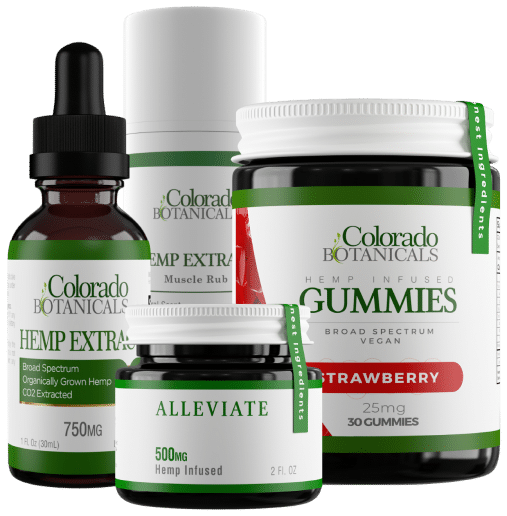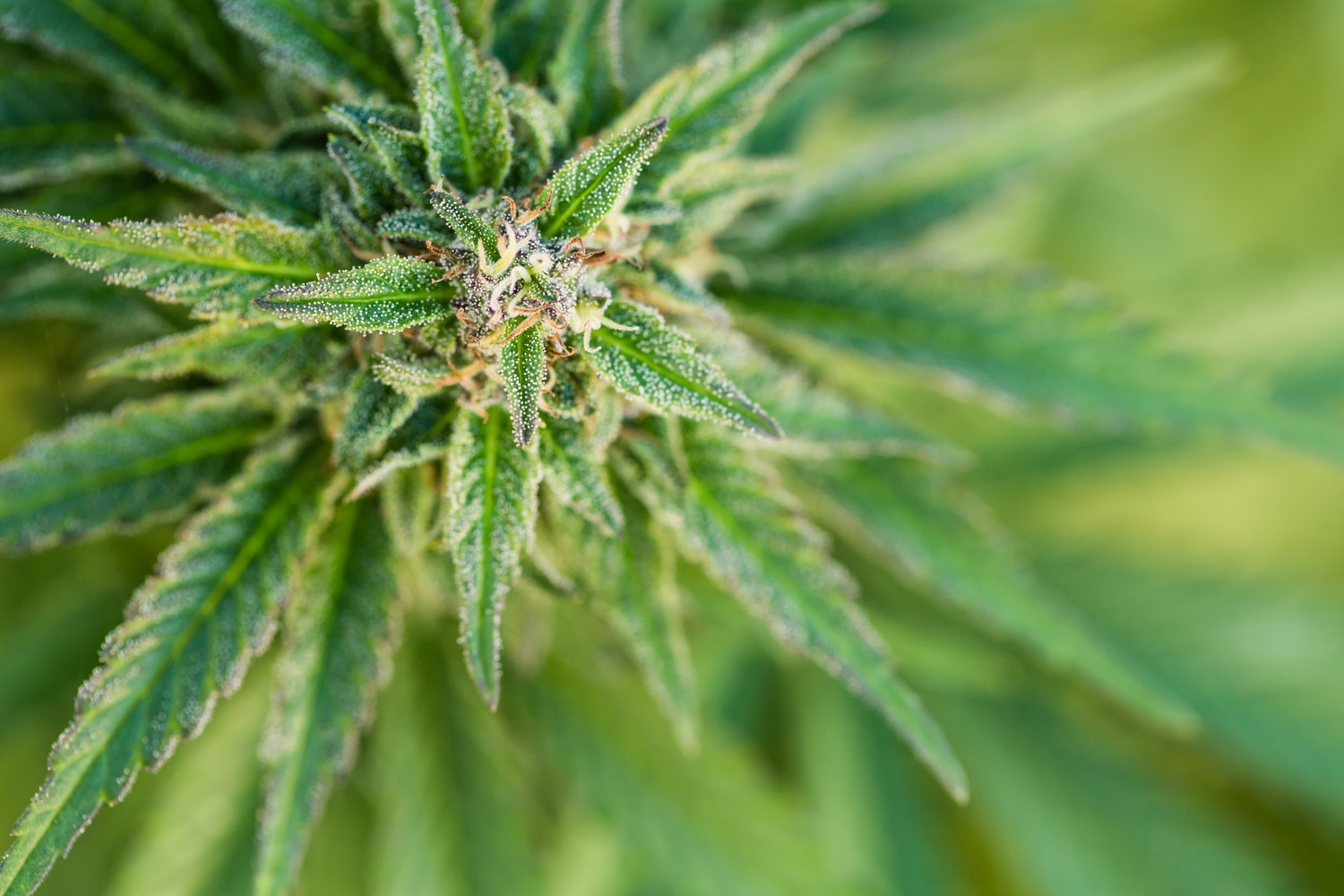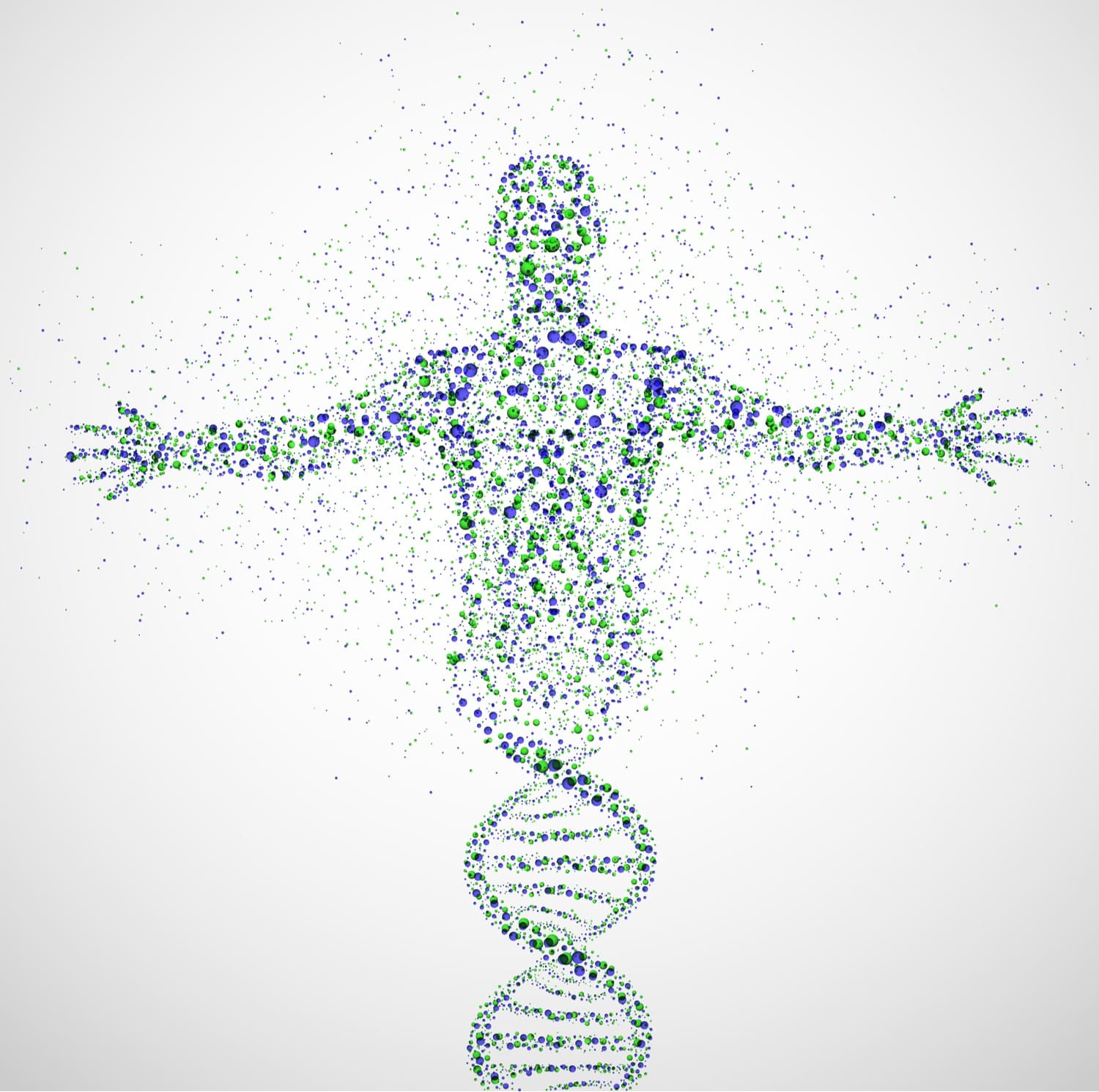CBD and pregnancy appear to be a perfect match. The endless pain, nausea, stress, and irritability of pregnancy are just a few obstacles women face during their nine-month journey.
Given that CBD potentially treats all of the above symptoms, it’s unsurprising that many women use CBD while pregnant. But is CBD safe? Everything has risks – including CBD – but the stakes are much higher when a baby is involved.
So can you use CBD while pregnant, or is it too risky for a developing fetus? Before you try, it’s crucial to understand the risks and benefits of CBD use during pregnancy.
What is CBD?
CBD stands for “cannabidiol,” a prominent cannabinoid found in the Cannabis sativa L. plant – also referred to as “marijuana” or “hemp,” depending on the THC content.
CBD and THC have similar health benefits, but CBD’s most significant selling point is the lack of intoxicating effects. CBD interacts with our bodies without directly triggering the same receptors as THC.
This significant difference makes CBD a better choice for daytime use, allowing people to improve symptoms and daily function without being hampered by THC.
Initially limited to oil, hemp-derived CBD is now available in a wide range of different products, like vapes, edibles including CBD gummies, drinks, creams, hemp joints, and topicals.
What Are Some Benefits of CBD Oil?
Some benefits of CBD oil may include pain relief, relaxation, appetite stimulation, mental clarity, and more.
However, aside from certain forms of epilepsy, the FDA has yet to acknowledge CBD’s other potential therapeutic uses.
Here are a few noteworthy ones.
- Anxiety and Depression: a 2014 study published in the U.S. National Library of Medicine found that CBD acts on the serotonin receptors to help regulate mood in animal subjects.
- Epilepsy: high doses of CBD are proven to treat rare, severe forms of childhood epilepsy. One 2019 study in Molecules found the effects of CBD reduce neural excitability and synaptic transmission by acting on the serotonin and GPR55 receptors.
- Inflammation: according to a 2019 publication in Antioxidants, CBD’s anti-inflammatory effects may come from its interaction with the PPARS receptors.
- Pain: the Antioxidants study above also explored various uses for the PPARS receptors, such as pain regulation. However, a 2020 experiment published in the Journal of Pain Research suggests that CBD dulls the TRPV1 “vanilloid” receptors, reducing pain signals.
- Sleep: a 2020 examination of existing data from Frontiers in Molecular Neuroscience noted that CBD’s indirect activity on the CB1 endocannabinoid receptor may help regulate sleep.
Why Some Pregnant Women Use CBD Oil
Some pregnant women use CBD oil to alleviate the many related symptoms. Moms often report using cannabis (CBD or THC) helps relieve pregnancy-related issues like:
- Morning sickness
- Irritability
- Aches and pains
- Gastrointestinal problems (bloating and gas)
However, while the short-term effects are undeniably positive, we have little research on CBD’s impact on the human reproductive system or pregnancy. Some of the scientific community sees this trend as a cause for concern and strongly advises against using CBD while pregnant.
“Perceived Lack of Risk”
Some argue that cannabis and cannabinoid extracts are unsafe, while others feel the opposite way.
The truth lies in between – we don’t know where, and that’s the problem. Dr. Katie Toft, the clinical director at Premier OBGYN of Minnesota, says, “a perceived lack of risk may be contributing. Changing social attitudes are contributing as well.”
Expectant moms focus on the beneficial effects of CBD while pregnant or breastfeeding. Consequently, they put themselves in a false sense of security to experiment with CBD freely.
Few Options
From over-the-counter to prescription medications, developing fetuses don’t respond well to many types of drugs. In some cases, women may have to stop taking certain medicines during pregnancy.
Regardless, this limitation can make it hard to find relief from the unpleasant pregnancy side effects.
CBD seems like the perfect solution. It’s a natural extract considered safe and non-addictive by organizations like the WHO.
With that kind of endorsement, using CBD during pregnancy looks like an excellent option.
Is It Safe To Use CBD While Pregnant?
No, it isn’t safe to use CBD while pregnant – at least according to medical experts. But CBD could also be perfectly safe. Researchers don’t want to give cannabidiol their stamp of approval for pregnancy without concrete supporting evidence.
So to nobody’s surprise, consumers and experts are sharply divided on the issue.
FDA
Considering the FDA’s rather turbulent history with (or perhaps against) hemp-derived CBD, it’s not surprising that they oppose it. “FDA strongly advises against the use of cannabidiol (CBD), tetrahydrocannabinol (THC), and marijuana in any form during pregnancy or while breastfeeding,” they say.
“FDA wants you to know there may be serious risks to using cannabis products, including those containing CBD, if you are pregnant or breastfeeding.”
American Academy of Pediatrics
The American Academy of Pediatrics is also concerned about our lack of data. They warn that women who use “…cannabinoid-containing products to treat a medical condition or to treat nausea and vomiting during pregnancy should be counseled about the lack of safety data and possible adverse effects of THC in these products on a developing fetus.”
Hemp-derived CBD can still contain trace amounts of THC, even if it’s broad-spectrum or isolate. Some CBD vendors aren’t thorough enough to remove all the THC from their products.
CDC
The Centers for Disease Control also has an unfavorable opinion on CBD and pregnancy. They explain: “Using marijuana while breastfeeding can allow harmful chemicals to pass from the mother to the infant through breast milk or secondhand smoke exposure. To limit potential risk to the infant, breastfeeding mothers should be advised not to use marijuana or products containing cannabidiol (CBD) in any form while breastfeeding.”
Support for Using CBD During Pregnancy
Despite the big organizations warning about using CBD while pregnant or breastfeeding, CBD’s reputation precedes it. We know CBD can treat rare severe forms of epilepsy, and there’s plenty of preliminary evidence suggesting other beneficial effects of CBD.
But with little data, most of CBD’s support in this regard comes from everyday users. They don’t agree with the FDA, AAP, or CDC.
We’ll cover some testimonies shortly. For now, let’s look at some research.
What Experts Say About Using CBD Oil While Pregnant
Experts don’t support CBD use in pregnancy, again due to the lack of data. It doesn’t help that the results they see are contradictory.
For example, a June 2010 study by Gelder et al. concluded that cannabis use during pregnancy did not correlate with low birth weight or premature birth.
Meanwhile, Gunn et al.’s April 2016 data analysis determined that cannabinoid consumption during pregnancy can increase the risk of anemia and low birth weight.
Are We Doing it Wrong?
A 2016 publication in Obstetrics & Gynecology reviewed 31 studies that had found unfavorable links between “marijuana” and pregnancy. Surprisingly, researchers never considered tobacco use in their papers.
When adjusted for smoking and other variables, cannabis isn’t an independent threat to fetal health.
What Pregnant Moms Say About Using CBD Oil
Pregnant moms who use CBD oil appear to enjoy its benefits and don’t notice any prenatal issues. For instance, according to Reddit user r/m-v-0_0:
I take CBD oil about twice a week for third-trimester uterus discomfort and painful contractions. It works great. I don’t feel high at all, and my baby continue[s] to do great.”
Similarly, Reddit user r/brookebuilder says:
“Use it! Love it. GREAT for my anxiety since I can’t take my diazepam and also helps me sleep!”
One thing worth noting is that most of the responses were hesitant, meaning posters were either apprehensive or completely against CBD during pregnancy.
Is CBD Oil Safe To Use While Breastfeeding?
CBD is not safe to use while breastfeeding, according to health experts. The CDC believes THC can appear in breast milk.
The organization’s stance on CBD is more theoretical. Rather than citing the potential risks of CBD itself, they mention the dangers of THC traces and contaminants in these products.
Why It Can Be Risky To Use CBD During Pregnancy?
It can be risky to use CBD use during pregnancy or while breastfeeding. But since we have contradictory information, there’s no telling what – if any – risks there are. Using CBD in any form while pregnant could be a helpful tool or a double-edged sword.
Not Enough Research
We all know the old saying, “knowledge is power.” Unfortunately, we lack the knowledge – and therefore the power – to determine if CBD is safe, how much you need to take, and whether it can cause short-term or long-term harm to a developing fetus.
But it’s not just the lack of conclusive research that has us in the dark.
Quality Concerns
In an unregulated market, quality is a serious issue. Many companies make excellent CBD products, but even they could slip up. Meanwhile, some hemp CBD extracts are poorly made, barely tested (if at all), and contaminated with pesticides, heavy metals, bacteria, fungi, and other contaminants.
In other words, you might not know what you’re buying.
Summary: Can You Take CBD While Pregnant?
Yes, you can take CBD while pregnant. Whether you should is another story. So far, the FDA, CDC, and the AAP don’t recommend pregnant women to consume CBD. However, this could change with conclusive large-scale human evidence.
If you’re pregnant, it’s best to speak with a doctor or OBGYN before taking any drug or supplement, including CBD. Weigh the risks and benefits since they might impact your baby’s long-term health.
Sources
Anand, U., Jones, B., Korchev, Y., Bloom, S. R., Pacchetti, B., Anand, P., & Sodergren, M. H. (2020). CBD effects On TRPV1 signaling pathways in Cultured DRG Neurons. Journal of Pain Research, Volume 13, 2269–2278. https://doi.org/10.2147/jpr.s258433
Atalay, S., Jarocka-Karpowicz, I., & Skrzydlewska, E. (2019). Antioxidative and anti-inflammatory properties of cannabidiol. Antioxidants, 9(1), 21. https://doi.org/10.3390/antiox9010021
Centers for Disease Control and Prevention. (2021, August 10). Marijuana. Centers for Disease Control and Prevention. Retrieved September 26, 2021, from https://www.cdc.gov/breastfeeding/breastfeeding-special-circumstances/vaccinations-medications-drugs/marijuana.html.
Clarke, S. D., Thuillier, P., Baillie, R. A., & Sha, X. (1999). Peroxisome proliferator-activated receptors: A family of lipid-activated transcription factors. The American Journal of Clinical Nutrition, 70(4), 566–571. https://doi.org/10.1093/ajcn/70.4.566
Commissioner, O. of the. (n.d.). What you should know about using CBD when pregnant or breastfeeding. U.S. Food and Drug Administration. Retrieved September 26, 2021, from https://www.fda.gov/consumers/consumer-updates/what-you-should-know-about-using-cannabis-including-cbd-when-pregnant-or-breastfeeding.
Conner, S. N., Bedell, V., Lipsey, K., Macones, G. A., Cahill, A. G., & Tuuli, M. G. (2016). Maternal marijuana use and adverse neonatal outcomes. Obstetrics & Gynecology, 128(4), 713–723. https://doi.org/10.1097/aog.0000000000001649
Gunn, J. K., Rosales, C. B., Center, K. E., Nuñez, A., Gibson, S. J., Christ, C., & Ehiri, J. E. (2016). Prenatal exposure to cannabis and maternal and child health outcomes: A systematic review and meta-analysis. BMJ Open, 6(4). https://doi.org/10.1136/bmjopen-2015-009986
Kesner, A. J., & Lovinger, D. M. (2020). Cannabinoids, endocannabinoids and sleep. Frontiers in Molecular Neuroscience, 13. https://doi.org/10.3389/fnmol.2020.00125
Larsen, N. (2021, February 8). Why CBD and Pregnancy Don’t Mix. Mpls.St.Paul Magazine. Retrieved September 26, 2021, from https://mspmag.com/health-and-fitness/why-cbd-and-pregnancy-dont-mix/.
NCI Dictionary of Cancer TERMS. National Cancer Institute. (n.d.). Retrieved September 26, 2021, from https://www.cancer.gov/publications/dictionaries/cancer-terms/def/serotonin.
Ryan, S. A., Ammerman, S. D., O’Connor, M. E., Committee On Substance Use And Prevention, & Breastfeeding, S. O. (2018, September 1). Marijuana use during pregnancy and breastfeeding: Implications for neonatal and childhood outcomes. American Academy of Pediatrics. Retrieved September 26, 2021, from https://pediatrics.aappublications.org/content/142/3/e20181889.
Ryberg, E., Larsson, N., Sjögren, S., Hjorth, S., Hermansson, N.-O., Leonova, J., Elebring, T., Nilsson, K., Drmota, T., & Greasley, P. J. (2007). The orphan receptor gpr55 is a novel cannabinoid receptor. British Journal of Pharmacology, 152(7), 1092–1101. https://doi.org/10.1038/sj.bjp.0707460
Schier, A., Ribeiro, N., Coutinho, D., Machado, S., Arias-Carrion, O., Crippa, J., Zuardi, A., Nardi, A., & Silva, A. (2014). Antidepressant-like and anxiolytic-like effects of cannabidiol: A chemical compound of cannabis sativa. CNS & Neurological Disorders – Drug Targets, 13(6), 953–960. https://doi.org/10.2174/1871527313666140612114838
Silvestro, S., Mammana, S., Cavalli, E., Bramanti, P., & Mazzon, E. (2019). Use of cannabidiol in the treatment of epilepsy: Efficacy and security in clinical trials. Molecules, 24(8), 1459. https://doi.org/10.3390/molecules24081459
van Gelder, M. M. H. J., Reefhuis, J., Caton, A. R., Werler, M. M., Druschel, C. M., & Roeleveld, N. (2010). Characteristics of pregnant illicit drug users and associations between cannabis use and perinatal outcome in a population-based study☆. Drug and Alcohol Dependence, 109(1-3), 243–247. https://doi.org/10.1016/j.drugalcdep.2010.01.007
White, J., & Poovendran, D. (2017, November 10). Cannabidiol (CBD) Pre-Review Report. World Health Organization. Retrieved September 25, 2021, from https://www.who.int/medicines/access/controlled-substances/5.2_CBD.pdf.









